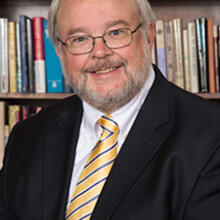Three years after Paul Ryan and Joseph R. Biden debated each other as vice presidential candidates, Washington is anxiously waiting them to make anguishing choices about their futures, whether Mr. Ryan will answer his fractured party’s pleas to serve as speaker and whether Biden can overcome the death of his son to run for president. Mr. Ryan prefers making policy as chair of the Ways and Means Committee to trying to make a dysfunctional House work. He prefers to spend his time raising his young family over raising funds for Republican candidates. Mr. Biden thinks he is the most qualified, but publicly agonizes whether he has the emotional strength and singlemindedness to run for president.
This political limbo comes after Pope Francis’ historic address to Congress and John Boehner’s announcement the next day that he would leave the House and office of speaker. Mr. Boehner was brought to tears by finally bringing a pope to Congress and broke out into song as he announced his escape from Republican ideological warfare. The shocks continued as Kevin McCarthy, the presumed speaker-to-be, withdrew as voting was to begin, leading to the appeals to Mr. Ryan.
This disarray is not isolated. There are endless charges and excuses around Hillary Clinton’s emails. Some Republicans seek to paralyze government and demonize immigrants. We are fighting a war against ISIS without authorization, direction or success. We repeat empty political rituals after repeated multiple slayings in public places. We see a libertarian orthodoxy of the right and left, enforced by the Koch brothers or Emily’s List, idolizing the market or individual choice.
Clinton’s inevitability is undermined by questions about trust and the surprising strength of Bernie Sanders, who is not a Democrat but is a democratic socialist. Donald Trump and Ben Carson lead the Republican race as they say things about immigrants and Muslims that would sink disqualify ordinary candidates in an ordinary campaign.
In these extraordinary times, bishops and other Catholic leaders should follow the example of Pope Francis in public life. Francis demonstrates how to share Catholic moral principles and priorities in ways that invite and persuade rather than alienate and push people away. Humility helps. Civility doesn’t hurt. It is better to humanize issues than politicize them. Francis appealed to our best traditions and values instead of pointing to our failures and condemning our sins.
Pope Francis’ priorities are clear. He reaches out to the sick and vulnerable, lifts up the poor and the forgotten. He contradicts the temptation in political and ecclesial life to focus on big contributors and ideological leaders. He seeks to reach the unconverted, not just true believers.
In “The Joy of the Gospel,” Pope Francis quotes the U.S. bishops: “Responsible citizenship is a virtue, and participation in political life is a moral obligation.” Pope Francis also shows us several ways to practice the “faithful citizenship” the church teaches and preaches. He is:
Principled, but not ideological. Pope Francis does not like ideologues of left or right, in the church or in public life. He avoids culture-war rhetoric but offers a principled call for a new culture which protects human life and dignity, family and creation. He warned Congress against “the simplistic reductionism which sees only good or evil; the righteous and sinners.” We need to “confront every form of polarization.... Our response must instead be one of hope and healing, of peace and justice.”
Political but not partisan. Francis told Congress: “All political activity must serve and promote the good of the human person and be based on respect for his or her dignity.... Politics is...an expression of our compelling need to live as one, in order to build as one the greatest common good: that of a community which sacrifices particular interests in order to share, in justice and peace, its goods, its interests....”
Civil but not soft. Francis affirmed and challenged our nation. He humanized those who have been demonized. His message was strong but not strident, and he challenged us on human life and care for creation, on supporting family and ending the arms race. He told the U.S. bishops, “Harsh and divisive language does not befit the tongue of a pastor, it has no place in his heart; although it may momentarily seem to win the day, only the enduring allure of goodness and love remains truly convincing.”
Engaged but not used. Francis stood with a smiling President Obama at the White House and with a proud and tearful Speaker Boehner at the Capitol, but he advanced the church’s principles, not their agendas. President Obama said the pope asks “everybody all across the political spectrum what more you can do to be kind, and to be helpful, and to love, and to sacrifice, and to serve.... I think he is speaking to all of our consciences.”
In the midst of partisan disarray, ecclesial divisions and skepticism about religion in politics, Pope Francis offers a powerful example of the “culture of encounter” and “path of fearless dialogue” that strengthens the church, enriches public life and advances the common good.
John Carr is director of the Initiative on Catholic Social Thought and Public Life at Georgetown University in Washington, D.C.








